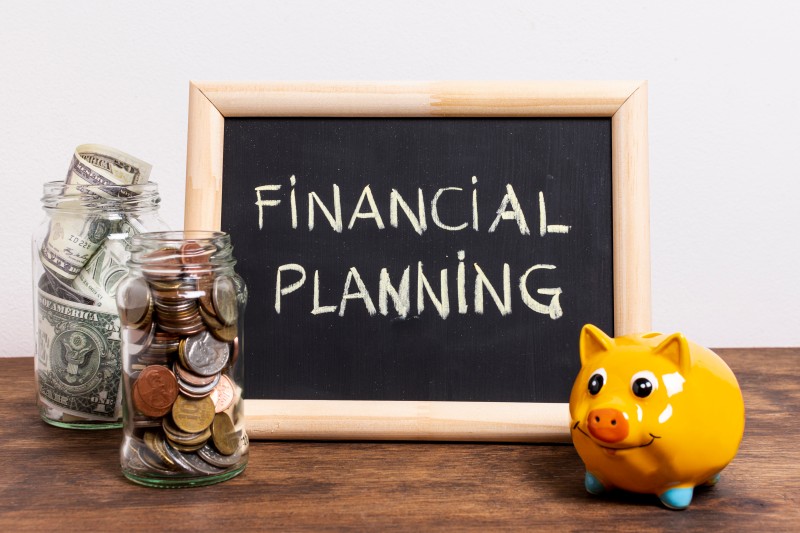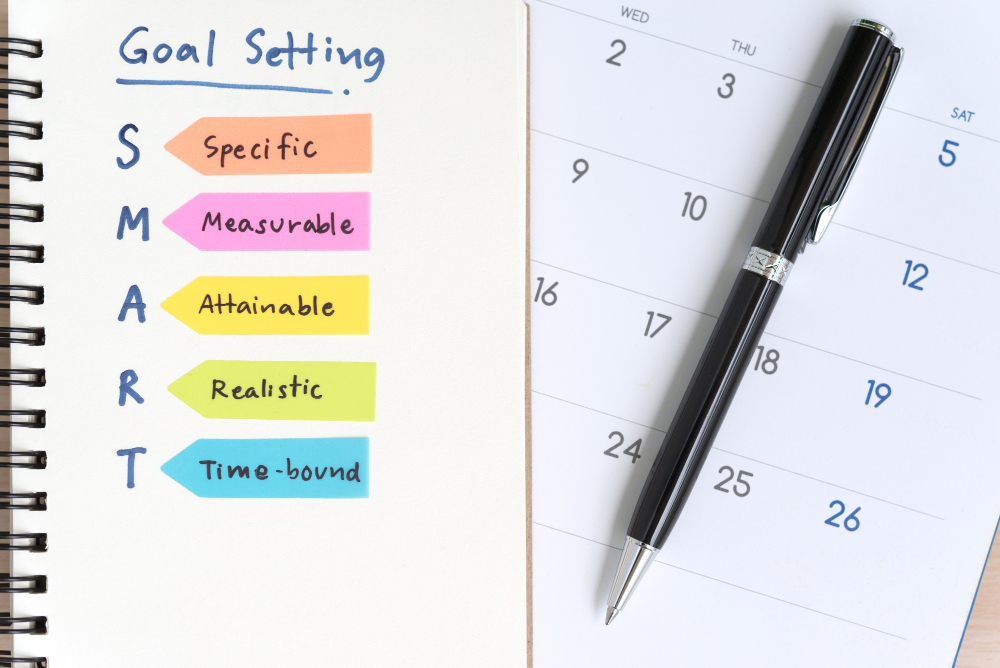We all have ambitions and goals in life. We dream of achieving things like owning a home, buying a car, starting a business, or even early retirement. To make these dreams a reality, you will need a financial plan that works well for you.
When it comes to money, it seems like it will never be enough to handle short-term goals, long-term goals, and unexpected expenses.
Despite a slight decline in the rate of inflation from 9.1% in December 2022 to 9% in January 2023, the cost of living remains high above the stipulated government target of 7.5%.
This has made it difficult for people to afford essential commodities and still find some money to spare for savings and emergencies. The high cost of living is mainly due to the high price of transport (13.1%), foods & beverages (12.8%), housing, water, electricity & gas (7.3%).
To make your goals a reality you need to make a plan to help you manage your finances. Good planning helps you prioritize your immediate needs or expenses and save money for your future.
Financial Planning
A financial plan helps you keep track of all your goals, measure your progress, and helps maintain discipline in spending your money.
It doesn’t matter how much money you earn or your current financial situation, with a clearly mapped-out plan for all your spending needs enables you to spend money accordingly and still save for your future.
Have you ever thought of buying something – realized you don’t have enough money – and were left wishing you could have used the money you had more wisely?

If this sounds familiar, then you do not have a financial plan and you really need one!
One thing that makes you realize the value of financial planning is an emergency!
Imagine a scenario where you have just paid rent and while going on with your daily routines an emergency occurs that needs you to travel to your rural home!
You have no money saved up and the need is urgent, what happens then? You will have to borrow some money and this puts you into debt!
A plan helps you to map out all your finances including assets, income, liabilities, and investments.
What you should include in your financial plan
- Financial goals -this is a plan for your money. It can be a long-term goal such as buying a car or owning a home or a short-term goal such as saving 200,000.
- Your net worth – The value of everything you own
- Cash flow – this refers to all your income minus expenses
- Investment plan – investing goals for stocks, bonds, or even in a small business.
- Emergency funds – Funds set aside to deal with emergency
- Debt – setting a plan to manage your debts helps you pay off on time and manage your income better
9 steps to creating a financial plan
A financial plan helps you understand the steps you need to take to reach certain goals such as buying your dream car, going to school, getting married, paying off your debt, etc. A plan will allow you to save money and afford the things you really want.
Here are easy steps you can use to come up with a financial plan:
1. Evaluate your current financial status
Understanding where you’re starting from will enable you to honestly address any weaknesses and establish precise goals. This is the first step in developing a successful plan.
To know your financial status, all you need to do is check on what you own (assets) minus the money you owe (liabilities).

When was the last time you looked at your spending? Have you checked your rent statements, cash spent on gas, electricity, Netflix, or transport for an entire month?
When you look at your spending patterns for the last 3 months, six months, or even the past year, you will notice spending patterns that can help you make informed decisions on your financial state.
For example, you can create a separate list for essential spending such as rent, food, groceries, electricity, and transport.
Then create a list of non-essentials such as entertainment, trips, hotels, etc.
With this list, you can now determine how much money you may save by cutting down on non-essential spending.
2. Set financial goals (short and long-term plans)
Now that you know your worth and your income, it is now time to set a goal and figure out what you want to achieve.
When making financial decisions, setting clear goals gives you direction and clarity. You can tell if you’re headed in the right path by looking at your goals.
Start by creating a list of your goals and dreams, from small objectives like saving Kes 50 a day to larger goals like home ownership.
S.M.A.R.T. goals keep you focused on achieving your dreams. They help to increase your chances of success by concentrating your efforts, making good use of your time, and using your resources.
- Specific – your goals should be clear
- Measurable -The goals should be measured in terms of accomplishments or progress
- Attainable – the goals should be realistic and achievable
- Relevant – plan for something you are passionate about/ care
- Time-Bound – should have a clear timeline on when to achieve the goals

3. Update your budget
A budget helps you keep tabs on all your expenses. Using a well-set plan, it will be easier to pay all your bills on time and save money for major investments and expenses such as buying a car or a home.
The best method for budgeting is the 50-30-20 model, which requires you to split your income into three main categories.
50% = needs or essentials
These are bills and other essentials like food, rent, and medical care that are necessary for your survival.
30% = wants
These are things you spend money on but they are not vital for your survival. They include buying electronics like-new phones, going on vacation, going to a movie, etc. They are extras that make your life more enjoyable.
20% = savings
You should always try to allocate at least 20% of your income for savings and investments. This is the money you use in case of emergency and invest to grow your income.
4. Save for emergencies
Many people live paycheck to paycheck, leaving little or no money for savings. If something unexpected happens and they need money urgently, they will not be able to deal with that emergency.
It is always important to save some money during good times so that the money set aside can be used during hard times.
5. Set a plan to pay Debts
According to a report by Financial Sector Deepening, two out of every three Kenyans are struggling to repay their debts.
No one likes talking about debts but they cannot be ignored. With debts, it is hard setting money aside for your savings or essential needs. So you should plan a way to repay your debt as soon as possible.
6. Start investing
A fantastic strategy to set yourself up for future financial success is to invest your money now. To start investing you should figure out how much money you want to set aside for your investment plans.
There are many investment options available for both seasoned investors or even beginners. You can invest in stocks, real estate, Money market funds, foreign exchange, bonds and so much more.
To learn more about investing especially in stocks read our beginners guide to stock investment in Kenya
7. Prepare for retirement
The sooner you can begin saving for retirement, the better. When you retire, your savings will have been steadily growing for more than 30 years if you begin saving for retirement in your 20s.
Although retirement may seem far off, planning early may be the difference between having a good retirement and depending on relatives to make ends meet.

It is advisable to save between 10% to 15% of your annual income in a retirement savings plan.
8. Think about insurance
You should begin considering measures to secure your wealth in case of an emergency. As your wealth increases over time it is crucial to have insurance to protect it in case of emergency.
Over the years medical expenses have increased significantly and in case of an emergency, they can drain your savings. That is why having medical insurance is important in safeguarding your financial plan.
There are different types of insurance including:
- Life insurance
- Home Insurance
- Áuto insurance
- Health insurance
- Disability insurance
9. Keep track of your financial plan
Your financial goals are not stagnant, they keep changing over time due to different needs at different stages in life. To keep positioning yourself for success, it is crucial to periodically review your plan and modify your goals.
By keeping track of your financial plan, you will hold yourself accountable for achieving your objectives.
Conclusion
To achieve your financial goals, planning should start early this is because if you start while still young, your money will have time to grow by the time you reach retirement age.
Some life-changing events such as
- Birth of a new baby
- Getting married
- Getting divorced
- Death in the family
- A new job
They make it necessary to review and revise our financial plans.
Financial plans are not just for the wealthy. They can be used by anyone to define their objectives and formulate a strategy for accomplishing them.
Your current financial situation does not matter. What is important is that you get to fulfill your dreams.
Do you want to start a business, buy your dream car or go on vacation? All you need to do is create a financial plan and you will have made the first step in the right direction.
What do you think is the hardest thing to do while setting up a financial plan?
Pleases Leave a comment based on your experience



Leave a Reply